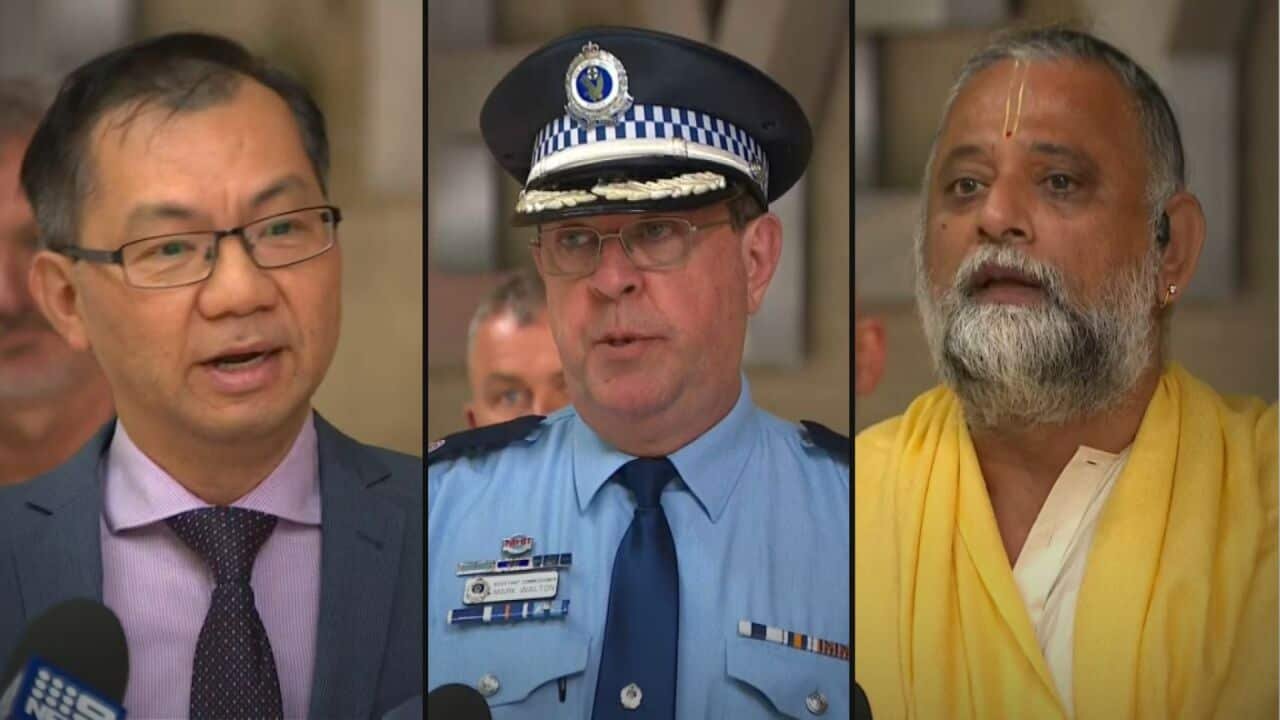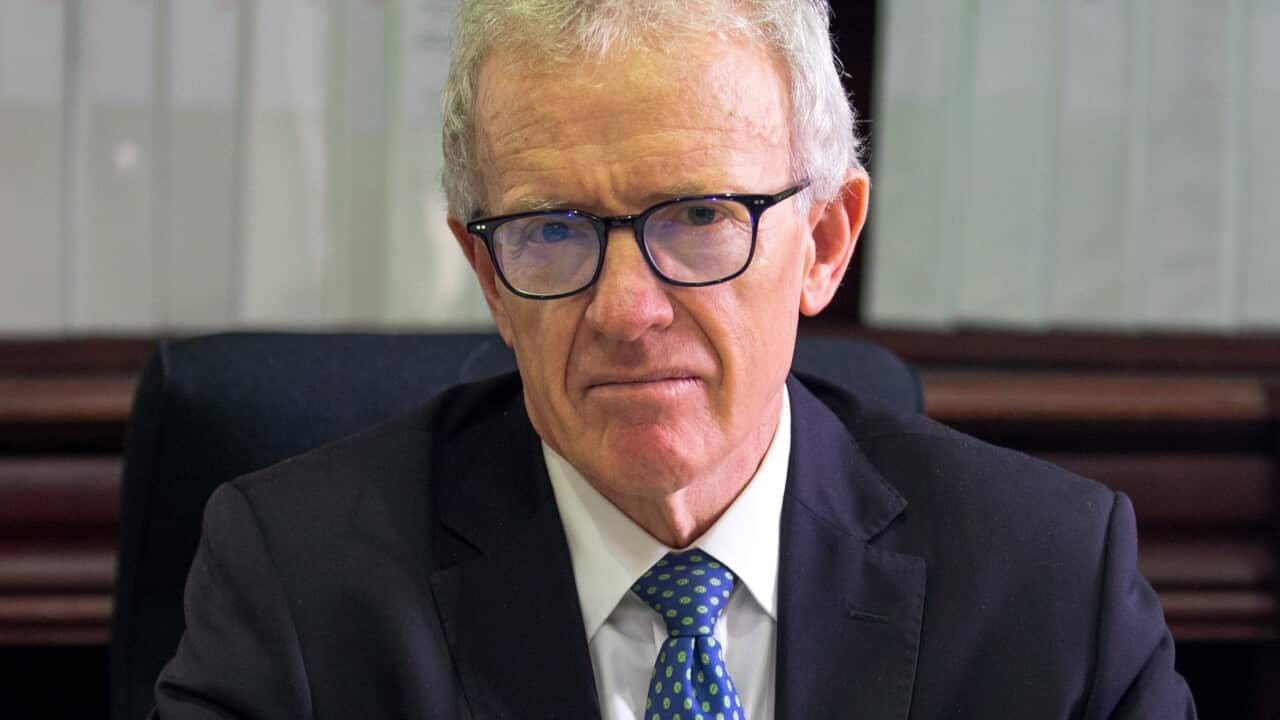KEY POINTS:
- NSW Police has launched a new campaign targeting hate crimes.
- Members of the public are being encouraged to report hate-motivated crimes and incidents.
- It comes amid a rise in incidents during the pandemic.
A new education campaign aims to reduce hate-motivated crimes and incidents in NSW by encouraging more victims and survivors to come forward and report to police.
New guidelines and training are being provided to police officers after the development of the new NSW Police strategy, following two years of consultation with community groups.
The campaign will include animated videos, posters, cards, and pamphlets.
The printed materials will be displayed in police stations, government and council offices, and local businesses. The printed items will be available in five languages other than English, including Arabic, Hindi, Simplified and Traditional Chinese, and Vietnamese.
How do NSW Police define a hate crime versus hate incident?
The launch comes amid a rise in hate-motivated crimes and incidents recorded during the COVID-19 pandemic, but that number is believed to only capture 25 per cent of what's happening in the community.
NSW Police said in recent months that there has been an increase of one hate crime reported per day.
During the pandemic, community groups have been collecting data from within their own communities on abuse and harassment. Registers maintained by the , and separately the , have documented the rise in cases during the pandemic, particularly targeting women.
An anecdotal rise in cases in the last three years has also been voiced by community leaders from Asian, Indigenous, Jewish and Muslim groups, triggering .
NSW Police Assistant Commissioner Mark Walton said on Thursday research showed only 25 per cent of hate crime victims sought police assistance.
"We know there is a significant disparity between the number of hate crimes that occur and the number reported to police," Mr Walton said.
"The impact of hate crimes and incidents is usually felt beyond just the immediate target. More often than not, it will extend to families, friends, and throughout communities.
"NSW is a diverse collection of communities, and we all need to make it clear that we do not tolerate or accept crimes or incidents based on bias or hate."
to NSW Police officers state a hate crime is "a crime motivated by hate, prejudice or bias towards people because of their identity or perceived difference".
Examples include motivating factors in crime based on race, religion or faith, ethnicity, sex or gender, disability, homelessness, or age.
Assistant Commissioner Walton said the NSW Police campaign of updated guidelines aims to target "the petri dish of hate" on the internet and social media.
"It allows people to build conspiracies to promote incorrect messages that, unfortunately, are consumed by many people. The more it's consumed, and the more people act on that."
The Australian Hate Crime Network, part of Sydney University, has previously said the issue impacts groups, including those who are Asian, Jewish, Muslim, from the LGBTIQ+ community, or who have a disability.
What about a separate criminal charge for hate crime specifically?
State governments in and have stepped up efforts to introduce criminal offences for hate symbols, including those promoting Nazi ideology.
In August 2022, NSW joined Victoria and Queensland in making it a in public without a reasonable excuse.
Hate crime in NSW that falls outside of that category can be addressed with a charge of misuse of a telecommunications device to threaten, or with a directive to social media companies to remove online material via the e-safety commissioner.
Assistant Commissioner Walton said some thought had been given to a separate criminal charge on hate crime, but it's not being pursued.
"We have had a look at what the UK and US are doing. It is not entirely successful. It is not about the title of the offence, or the penalty. It is about what we can bring forward in court for the judge to determine an appropriate sentence."
He said the campaign is encouraging members of the community to report all incidents of hate speech.
"If police don't get the reports, we can't understand them, we can't prevent them and we can't put resources where they need be."
How have community groups reacted to the campaign?
ACON, the NSW-based health promotion group for members of the LBGTIQ+ community, welcomed the timing of the campaign ahead of Sydney WorldPride 2023 in February.
The organisation's director of policy and research, Brent Mackie, said the gay hate crimes are not as overt as in the 1970s, 80s, and 90s, but it still remains an issue involving physical violence.
"People are afraid of coming forward because they experienced discrimination from law enforcement and government in the past," he said during the launch of the campaign.
Assistant Commissioner Walton said NSW Police had over the years put more resources into its strategy on hate crimes, including 12 officers in a dedicated hate crime unit.
The CEO of the NSW Board of Jewish Deputies, Darren Bark, said he welcomes the additional attention on the issue, adding it's important people are confident that police will act when an incident is reported.
"Fighting hate is everybody's responsibility. We know that when you report it; together, we can tackle it."
The president of the Vietnamese Community in Australia, Paul Huy Nguyen, said it's concerning to see the sharp rise in incidents, particularly online.
"There are so many hate incidents, especially online, that has been escalating to the next level of being a crime. A number of our community members have been subjected to online attacks and online harassment."
The Australian Council of Hindu Clergy said the key to making people feel comfortable with reporting incidents will be education and the effectiveness of the police follow-through.
The group's public relations officer, Pandit R. Athreiya, said the feeling of support has to "permeate through" and go beyond just being on paper.
"This is a crime, it's not something that you have to put up with...[encouraging more reporting] that can come from the leaders or from the within the community and hearing from those who experienced going down the path and being able to achieve what they want to achieve."
Reports of crime can be made by contacting or attending your local police station. In an emergency, call Triple Zero (000).















